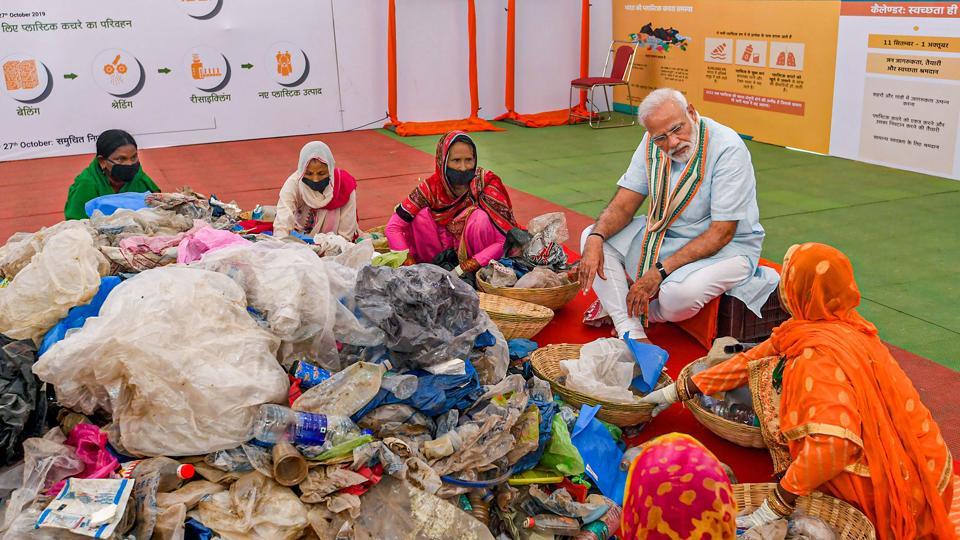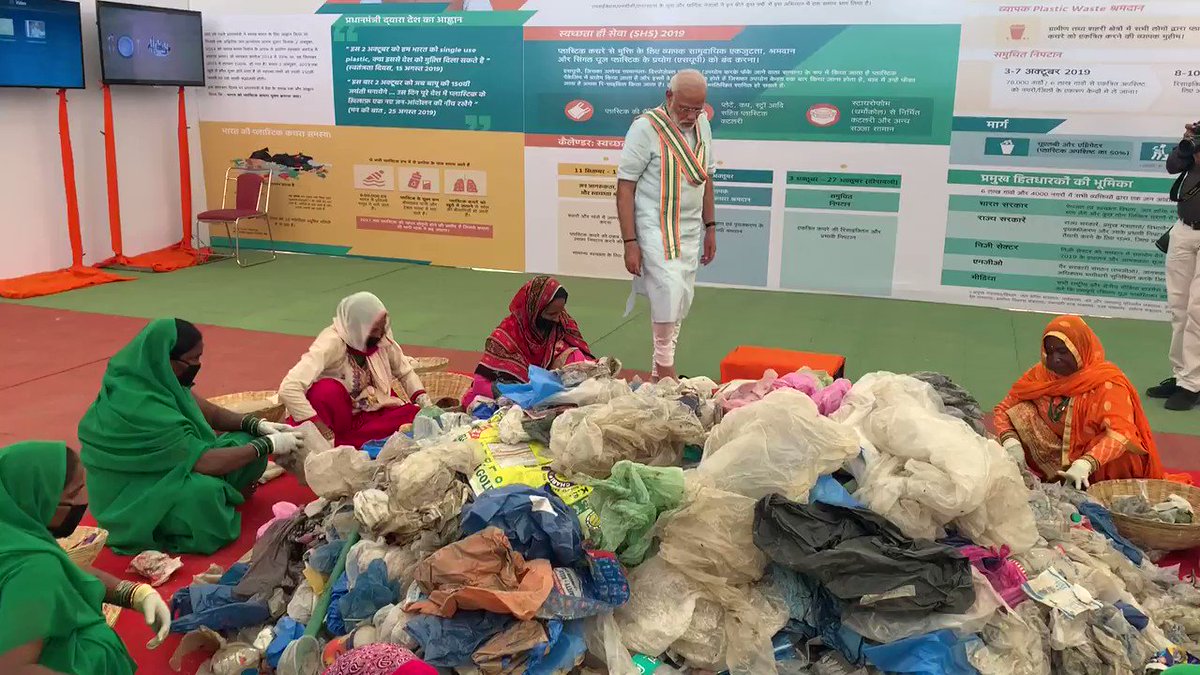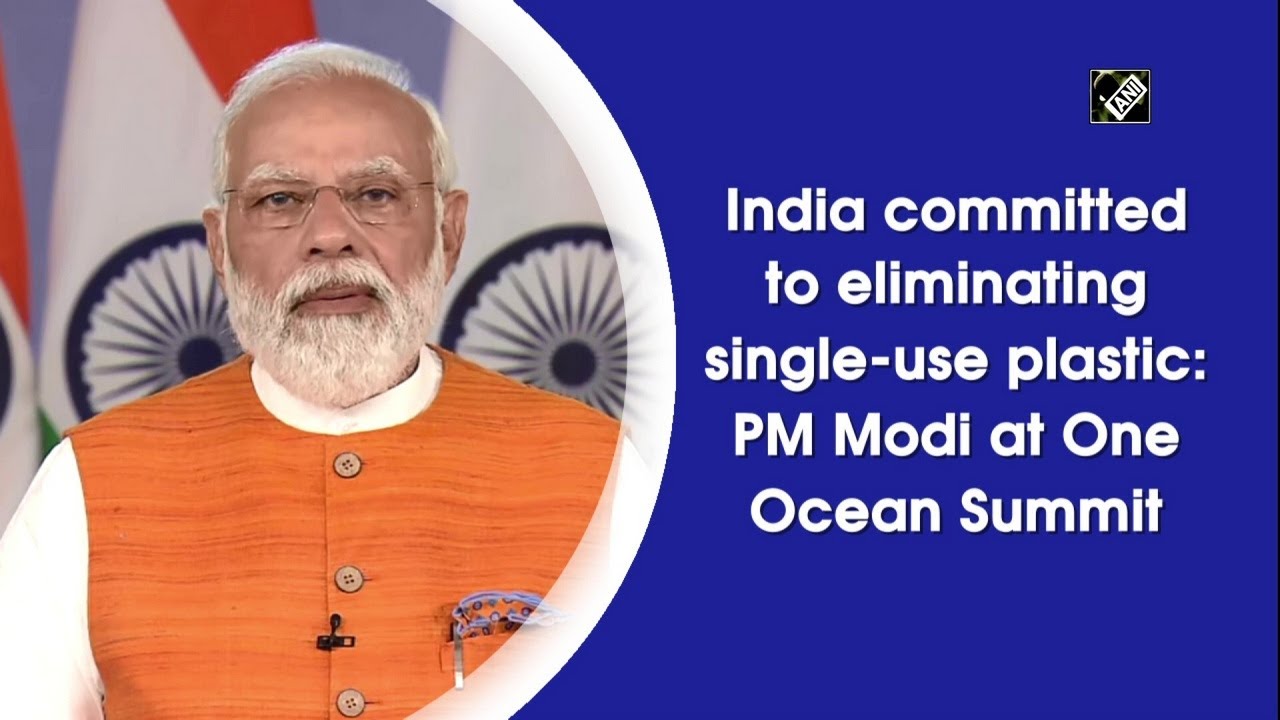Introduction:
Rajkotupdates.news: pm modi india happy to join single use plastic, In a significant move towards environmental conservation, Prime Minister Narendra Modi has announced India’s enthusiastic participation in the global campaign to eliminate single-use plastic. This declaration, made during a recent address to the nation, highlights the government’s commitment to sustainable practices and its determination to combat the adverse effects of plastic pollution. As the nation’s leader, PM Modi aims to inspire a collective effort towards a greener and cleaner future. The decision has garnered praise from environmentalists and citizens alike, signifying a positive shift towards a more sustainable India.
Understanding the Problem:
Rajkotupdates.news: pm modi india happy to join single use plastic, The issue of single-use plastic has gained considerable attention in recent years due to its devastating impact on the environment. Single-use plastic, which includes items like plastic bags, straws, cutlery, and packaging, is designed to be used once and then discarded.

Unfortunately, this convenience comes at a great cost. Plastic waste often ends up in landfills or finds its way into rivers, lakes, and oceans, causing severe harm to marine life and ecosystems. Furthermore, plastic pollution has detrimental effects on human health, as toxic chemicals from plastic can contaminate food and water sources.
India’s Commitment:
Recognizing the urgency of addressing this global crisis, Prime Minister Modi has called for a complete ban on single-use plastic items across the country. The government has already taken various measures to reduce plastic consumption, such as promoting alternatives like cloth bags and encouraging the use of eco-friendly materials. By joining the worldwide movement against single-use plastic, India aims to set an example for other nations and contribute to a cleaner planet.

Impact on Environment and Economy:
The ban on single-use plastic is expected to have far-reaching positive impacts. From an environmental standpoint, reducing plastic waste will help protect delicate ecosystems, preserve biodiversity, and improve the overall health of the planet. It will also reduce greenhouse gas emissions associated with plastic production and disposal. Economically, this shift opens up opportunities for the growth of sustainable industries that focus on manufacturing and promoting eco-friendly alternatives. By investing in research and development of biodegradable materials, India can foster innovation and create new jobs.
Public Awareness and Support:
Public awareness and participation play a vital role in the success of any sustainable initiative. To generate enthusiasm and support, the Indian government plans to launch nationwide awareness campaigns to educate citizens about the harmful effects of single-use plastic and the benefits of adopting eco-friendly alternatives. Engaging citizens, particularly the youth, through schools, colleges, and community organizations, will empower individuals to make conscious choices that contribute to a plastic-free future.

Collaboration and Global Cooperation:
India’s commitment to banning single-use plastic aligns with global efforts to combat plastic pollution. The country is actively engaging in international forums and collaborations to share knowledge, best practices, and technological advancements. By working together with other nations, India can learn from successful initiatives and implement strategies that have proven effective elsewhere. This collaborative approach ensures a more comprehensive and impactful fight against plastic pollution on a global scale.
Challenges and the Way Forward:
Implementing a nationwide ban on single-use plastic is not without challenges. Adequate infrastructure, waste management systems, and affordable alternatives must be developed and made accessible to all. The transition may require initial investments, but the long-term benefits to both the environment and the economy outweigh these costs. Building a sustainable future requires a collective effort from the government, industry, civil society, and individuals.
Must Read=Rajkotupdates.news : the biggest bid player on ipl 2022 mega-auction
Conclusion:
Prime Minister Modi’s declaration of India’s commitment to eliminating single-use plastic marks a significant milestone in the nation’s journey towards sustainability. By banning these harmful products, India is taking a bold step towards protecting the environment, preserving its natural resources, and ensuring the well-being of its citizens. The success of this initiative hinges upon the collective responsibility and active participation of every Indian citizen. Together, we can create a greener and cleaner India for generations to come.
FAQS
Q1: What is the significance of PM Modi’s announcement regarding single-use plastic? PM Modi’s announcement signifies India’s commitment to join the global campaign against single-use plastic. It demonstrates the government’s dedication to sustainable practices and the preservation of the environment.
Q2: What is single-use plastic? Single-use plastic refers to items that are designed to be used only once before being discarded. This includes items like plastic bags, straws, cutlery, and packaging materials.
Q3: Why is single-use plastic a concern? Single-use plastic poses a significant environmental threat due to its non-biodegradable nature. It contributes to pollution in landfills, water bodies, and ecosystems, harming wildlife and contaminating food and water sources.
Q4: What measures has the Indian government taken to reduce single-use plastic? The Indian government has already implemented several measures to reduce single-use plastic, including promoting alternatives like cloth bags, encouraging the use of eco-friendly materials, and introducing awareness campaigns to educate citizens about the harmful effects of plastic pollution.
Q5: How will banning single-use plastic impact the environment? Banning single-use plastic will significantly reduce plastic waste, leading to a cleaner environment. It will help protect ecosystems, preserve biodiversity, reduce greenhouse gas emissions, and mitigate the adverse effects of plastic pollution on wildlife and human health.





